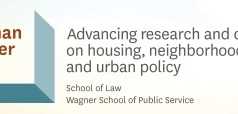Advocates Applaud HUD on New Reverse Mortgage Policy that Could Reduce Foreclosures on Surviving Spouses
REVERSE MORTGAGE SERVICERS URGED TO ADOPT NEW POLICY AND STOP FORECLOSURES
Washington, DC – June 16, 2015 – (RealEstateRama) — Last Friday, the U.S. Department of Housing and Urban Development released an updated policy that gives reverse mortgage servicers the ability to allow a surviving spouse to stay in their home if the mortgage was originated prior to August 4, 2014.
Attorneys and consumer advocates applauded HUD’s new policy that will benefit thousands of older homeowners across the nation who could otherwise be at risk of foreclosure. A group of organizations and attorneys who had previously advocated on behalf of these homeowners released a joint statement:
Joint statement by National Consumer Law Center; California Reinvestment Coalition; Elder Abuse Program, Institute on Aging; National Housing Law Project; Sandy Jolley; and Housing and Economic Rights Advocates:
“HUD’s new policy is welcome news for surviving non-borrower spouses, many of whom would otherwise be facing foreclosure. This news will be a huge relief for homeowners who are facing sale dates. We look forward to hearing from each of the reverse mortgage servicing companies as to whether or not they will use this new option to keep surviving spouses in their homes. It’s a common sense solution and we urge the reverse mortgage servicers to immediately adopt this policy for any at-risk homeowners.”
Additional quotes by advocates:
Craig Briskin, a partner with Mehri & Skalet, PLLC, in Washington, DC, who has represented Plaintiffs in Bennett v. Donovan, Plunkett v. Castro and Snyder v. Castro, states, “We are thrilled that the lawsuits we filed beginning in 2011 on behalf of surviving spouses have helped to produce this excellent result. We have already heard from our clients, and other reverse mortgage borrowers and surviving spouses, about what a profound difference HUD’s new policy will make in their lives. Because of this new policy, seniors will no longer face foreclosure soon after they lose their spouses, adding misery to heartbreak. We stand ready to work with HUD and reverse mortgage lenders to ensure that all surviving spouses can stay in their homes, just as federal law requires.”
“By updating its policy, HUD has taken a giant step to make a difference for vulnerable homeowners who are already grappling with the traumatic loss of a loved one. I hope servicers move quickly to take advantage of this policy to keep thousands of newly widowed spouses of reverse mortgage borrowers in their homes” comments Odette Williamson, staff attorney at the National Consumer Law Center.
“As part of our protest against the merger of OneWest with CIT Group, we’ve heard from a number of these surviving spouses who have been facing foreclosure solely due to the death of their spouse who was listed on the reverse mortgage. We are eager to hear if OneWest Bank (owner of Financial Freedom, a reverse mortgage servicer) and other servicers will adopt this policy so that surviving spouses are no longer being foreclosed on during an already difficult time in their lives” adds Kevin Stein, associate director of the California Reinvestment Coalition.
Jan Cooper, a surviving spouse in Anaheim, California, who was facing foreclosure, adds: “I just read the new HUD policy and am finding it hard not to jump from my chair and cheer. I have struggled to remain in my home with numerous extensions postponing foreclosure since the death of my husband Jan. 2014. Now it is up to Financial Freedom to be willing to assign my home to HUD. At last, somebody listened to our cries!”
Karen Hunziker is a surviving spouse and is a plaintiff in a lawsuit brought against HUD (Snyder v. Castro) to stop these foreclosures. She comments: “This is good news, and I’m cautiously optimistic that my servicer (Financial Freedom) will use this policy to allow me to remain in my home.”
“HUD has take one good forward step to return to the intention of the reverse mortgage program “to keep seniors in their home for life” The next step is to require all Servicers to offer the MOE option in ML 2015-15. There are very few consumer protections in the Reverse Mortgage Program and HUD needs to consistently enforce them across the board and not let Servicers pick and choose who they want to apply HUD regulations to” adds Sandy Jolley, a reverse mortgage suitability and abuse consultant.
Background
The updated policy contained in HUD Mortgage Letter 2015-15 will benefit many couples who have a reverse mortgage (originated before August 4, 2014) with only one of the spouses listed on the mortgage. While couples were frequently told by mortgage brokers that the other spouse could be added to the mortgage at a later point, this was inaccurate. As a result, if the borrowing spouse passed away, then the non-borrowing, surviving spouse faced foreclosure. After lawsuits (Bennet v. Donovan and Plukett v. Donovan) brought by AARP and the law firm of Mehri & Skalet, a federal judge ordered HUD to revise its policies in order to address this problem. HUD announced a new policy in January 2015. However, the new policy was widely criticized by advocates, HUD later rescinded the policy, and announced the new policy (HUD Mortgage Letter 2015-15) last Friday.















